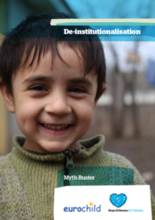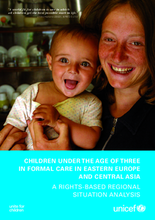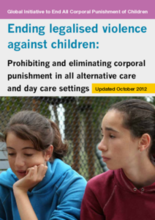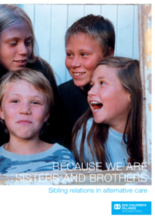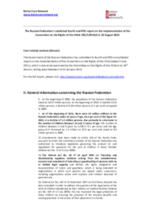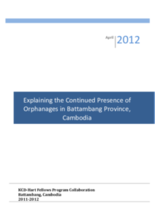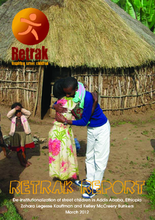Displaying 511 - 520 of 691
This briefing paper seeks to address key misunderstandings about de-institutionalisation. It explains what it is and what it is not and addresses key questions often asked about the need for such institutions, the role they play and the impact of this transformation and what it entails.
Through a comprehensive statistical analysis and literature review, this UNICEF report provides a child rights-based up-to-date review of the situation of children under the age of three in formal care in the countries of Central and Eastern Europe and the Commonwealth of Independent States (CEECIS).
The report provides guidance on achieving law reform which gives children in alternative care and day care the protection from all forms of corporal and other cruel and degrading punishment that is their absolute right.
This publication by SOS Children’s Villages International brings together research findings, learning and policy recommendations about sibling relations in alternative care gathered from five different SOS Children’s Villages associations (Germany, Austria, France, Italy, and Spain).
Care related sections of the Government of the Russian Federation's fourth and fifth combined report on the implementation of the Convention on the Rights of the Child (dated 3rd June 2011).
This paper describes a study that assessed the attitudes of people in the Hashemite Kingdom of Jordan toward the implementation of foster care as an alternative to institutions for children.
This video showcases the Family-based care program of Save the Children and its partners in Indonesia.
On May 2, 2012, in preparation of the Family Strengthening and Alternative Care Conference for Francophone Sub-Saharan Africa in Dakar, Senegal, BCN and the regional planning committee convened experts and practitioners to present and discuss the efforts to implement the Guidelines for the Alternative Care in the region. Watch this video for presentations, country level experience from Togo, and discussions on the pressing issues facing implementation in the region.
This qualitative research study seeks to better understand some of the reasons for residential care expansion in the province of Battambang, Cambodia. The study aims to identify why children are sent to orphanages and understand the attitudes of those stakeholders who are influencing the rise in institutions in the province.
The study was carried out in Addis Ababa, Ethiopia. The purpose of this research is to utilise information collated from literature review as well as informant interviews and focus group discussions to identify good practices or help inform the development of such practices aimed at assisting street children currently residing in institutional care to return to a family-based environment.

